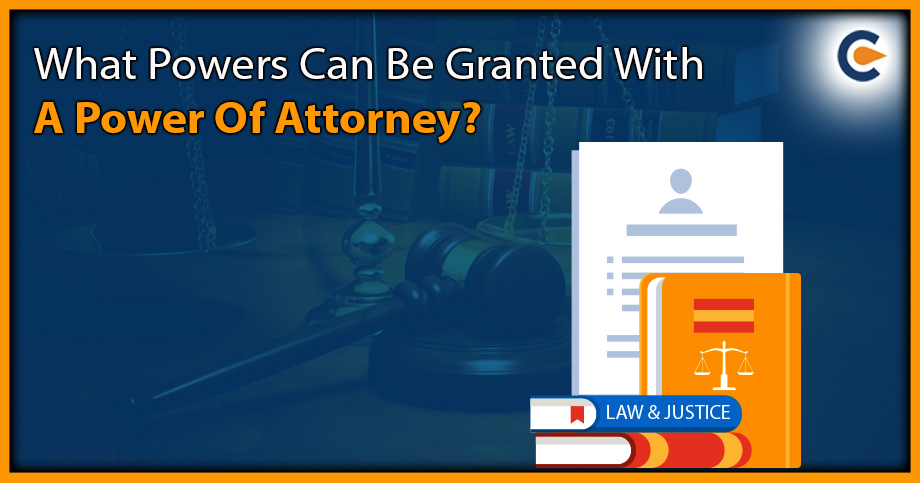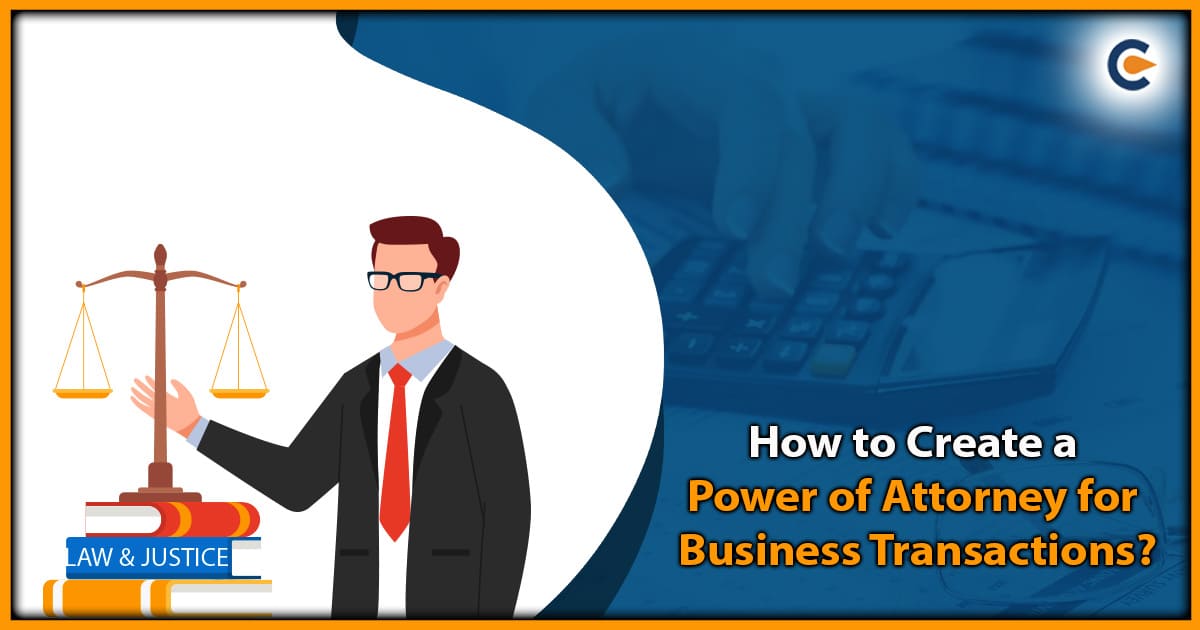Recently, the requirement to engage in contracts or agreements involving commercial and other activities has become a frequent and significant aspect of everyday life. As a person’s workload increases, it becomes mandatory for him to rely on someone else to complete his other tasks.
To complete their other tasks, an individual can appoint a power of attorney (POA), giving him the power to handle things on his behalf. The term power of attorney (POA) refers to a legal power that gives a specific person authority to act on behalf of another person. As such, a POA gives the agent the authority to act on behalf of the principal. The power of attorney has the power to make decisions about the grantor’s property, finances, investments, or health care.
Definition of Power of Attorney
The Power of Attorney is a document that grants someone the authority to serve as an agent for the person who grants him powers; the person who grants powers to the POA agent is known as the principal. It is important to note here that a person does not have to be an attorney to have power of attorney to represent another person.
A power of attorney is a proxy document that allows the principal to appoint an agent to carry out specific tasks on their behalf.
Although the law governing the powers of an attorney is very particular and condensed, the basics of this document are governed by agency law as provided in the Indian Contract Act.
There are different types of powers of attorney. The criterion for determining which category a particular document falls into is the subject matter for which the POA agent is granted; if limited to a particular subject matter then it is specific, otherwise it is general POA.
Powers Can Be Granted With a Power Of Attorney
The power of attorney can become effective immediately after signing or only in the event of the incapacity of the principal. The following powers can be granted with a Power of Attorney by the principal to the POA agent:
Powers Related To Contracts and Agreements in POA
- The power of attorney gives power to the agent to enter into a contract.
- The power of attorney allows the agent to perform any contract, agreement, or any other writing on behalf of a principal.
- POA allows the agent to make any contract or agreement, or to sign and execute it, and to deliver and acknowledge such contract or agreement.
Powers Related To Real Estate in POA
- The POA agent can Sell and barter the principal’s property, and can also rent the principal’s property, and collect rent on his behalf, grant, negotiate, and pledge related to the principal’s property.
- POA agent can also handle matters relating to the Execution of deeds, contracts, mortgages, promissory notes, cheques, drafts, and bonds;
- Administer, handle, liquidate, and regulate everything related to matters of principal’s property (real estate);
Powers Related To Bank Accounts, Certificates Of Deposit, and Money Market Accounts in POA
- POA agents have the power to deposit or withdraw funds from the principal’s bank accounts, certificates of deposit, money market accounts, etc.
- POA agents have the authority to write, sign, endorse, accept, and deliver every cheque and bill of exchange.
- POA agent can complete or release any required deeds of trust or other security arrangements
- POA agents can Purchase and redeem certificates of deposit at banks, savings, and credits.
Powers Related To Tax Returns, Insurance Policies, and Work Related To Other Documents in POA
- POA agent is allowed to submit and sign tax returns, and he can also sign insurance forms, and other documents or paperwork, if necessary
- POA agents also have the power to represent themselves on behalf of the principal in all the above-mentioned situations.
Powers Related To Securities, Stocks, Bonds, and Other Investments in POA
- POA agents have the authority to Sell the principal’s Securities, stocks, bonds, and other investments, if necessary and beneficial for the principal.
- POA agent is allowed to complete, perform and deliver any assignments of such abovementioned investments or securities.
Powers Related To Medical or Health in POA
- A principal can appoint a POA agent to take decision health-related decisions.
- Medical POA won’t go into effect until the Principal is conscious and in full mental and physical capacity.
- For example, the grantor’s medical expenses may be paid by the POA agent, but he cannot decide whether to turn off life support if it is required.
The Fundamental Ideas To Keep In Mind About POA Are As Follows:
- A power of attorney must be strictly and properly interpreted.
- If the principal wants the POA agent to enter into collateral agreements, or contracts or complete, perform, or negotiate for any other credit instrument it should be mentioned precisely in the POA.
- The authorized representative i.e. POA agent is only permitted to act to the extent principal has given him power, he cannot bind the principal by his actions any more than he authorized on the basis of the power of attorney.
- The principal is not bound by the agent’s fraud. For agent fraud, the principal cannot be held accountable or sued.
- Any action taken by the POA agent that goes beyond the scope of the power of attorney is not enforceable against the principal if the power of attorney merely authorizes the representative with restrictions on commercial operations.
- For instance, the ability to sell land does not grant the ability to mortgage it.
Important Rules to Keep In Mind While Drafting A Power Of Attorney
- The enacting part of the law is regulated by the performance.
- When permission is given to the POA agent by the principal by simple words to perform a specific act, then those simple words are limited to performing what is necessary for the proper performance of that specific act/task.
- Terms and Conditions do not confer general powers but are limited to the purpose for which the power of attorney is granted and shall be construed to extend specific powers only where necessary for that purpose.
- The POA document shall be constructed accordingly, it should include all the powers necessary for its performance.
Conclusion
Powers related to contracts, agreements, real estate[1], investments, finance, tax, insurance, securities, and health can be granted to the POA agent by the principal in the power of attorney agreement. As per the observation and rules, the power of attorney is limited to being active for the client only in certain matters, only in a certain type of business, or only in a certain legal transaction as specified by the principal in a POA. Generally, a POA expires after its purpose or performance is complete. The principal is not bound by the agent’s fraud. For an agent’s fraud, the principal cannot be held accountable or sued. Any action taken by the agent in excess of that capacity will not be binding on the principal if the power of attorney does not grant him that right.
Read Our Article: What Is A Power Of Attorney And Why Is It Important?











